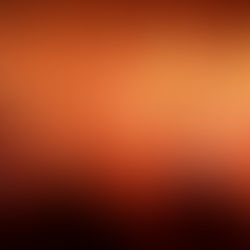- Rebecca Wells
Music Law 102 : Protecting Work Through Copyright (pt. 2)
In this part of the blog series on Music Law, we explore protection of a work through copyright.
Please understand, this blog is not intended to provide specific legal advice to your individual situation or circumstance, but instead provides a general overview of United States Copyright Law, and its implication on artists, producers, writers, and other creatives in the music industry.
WHAT IS A COPYRIGHT?
A "copyright" is a form of protection provided by the laws of the United States, governed by Title 17 of the United States Code. The protection is granted to authors of “original works of authorship”, including literary, dramatic, musical, artistic, and some other enumerated intellectual works.In layman’s terms, as it relates to music, there is a difference between the lyrics of a song, and the underlying production (i.e. music composition). Both are protect-able, either separately or collectively, or both.

WHO OWNS A COPYRIGHT?
A copyright is created from the time a work is created into a fixed, tangible, form. Just because you think of a hot beat, or the next best lyrics for a Beyoncé album, that doesn’t mean that you have a copyright, even if she uses the same or similar beat and/or lyrics.
On top of the work having to be in a fixed form, if a person hires you for the purpose of creating work, or if you are an employee of an employer, then likely Section 101 of the Copyright Law would probably classify the work as a “work made for hire”.
If two, or more, people create a work together, then the two people are co-owners of the copyright, unless they have an agreement in place to say otherwise.
In the United States, a person under the age of eighteen (18) may claim a copyright, but each state’s laws are different when it comes to business dealings involving copyrights owned by minors. In order to determine specific state laws relevant to your situation, contact our professionals for greater guidance.

HOW DOES AN OWNER SECURE A COPYRIGHT?
The way that a copyright attaches to a work is often misunderstood.
Surprise, surprise… no matter what you may have heard, a publication or registration is not necessary in the U.S. Copyright Office to secure a copyright.
However, that is not to discourage you from registering your copyright, there are so many advantages that come along with registering. Registering at the time of creation is especially important for independent artists and producers, namely those who submit their work to major labels. The Carrington Firm has been integral in advising, consulting and representing independent artists and producers in securing owed royalties for major labels infringing on copyrights, both registered and unregistered.

WHAT POWER DOES A COPYRIGHT OWNER HAVE?
The owner, or holder, of a copyright has immense power, and broad ranging rights of control as it relates to their copyright. Including, but not limited to, the power to: reproduce; make derivatives; distribute by sale, rental, lease, etc; and perform the work publicly, or allow another to do so. In essence the holder or owner of a copyright controls just about every aspect of the work. When it comes to visual art, there are additional right that the owner has, but the scope of this series is only referring to music.
The broad rights expressed above, are not without limitation however. Section 107 to 122 of the Copyright Act of 1976 gives a clearer picture of the limitations. One of the biggest, and best-understood limitations is called “fair use”. Fair use essentially is the permissive ability of a non-owner to use excerpts of a work for purposes such as criticism, news reporting, teaching, research, etc. If you are a producer, and sample a song, for clarity sake – this is not fair use. We’ll touch on sampling in a later post.

WHO OWNS THE WORK? PUBLISHER OR CREATOR?
If you recall from Part 1 of this series, we indicated that the copyrights in the musical composition and/or lyrics are generally owned by the publisher, but you may be wondering how that exactly works.
Well, when it comes to copyrights, writers, and publishers, and especially recording or publishing deals; in most instances, the original creator in fact sells their copyrights to the big boy gatekeeper, either the record label or music publisher. The same thing occurs in movie studio and book publishing deals as well, so the music industry is not alone in this practice.
Selling off ownership in a copyright can be either good or bad, for both parties involved. Once a creator sells the copyright, depending on the terms of the agreement for sale, the creator is generally entitled to royalties, but in most cases loses a good deal of bargaining power if/when it comes time to renegotiate.
Most contracts for purchase/sale of a copyright will contain a clause to this effect:
“The [author] assigns to [publisher] all right title and interests, including all rights under copyright, in and to the work…”
How do creatives get themselves into this conundrum? Well there are a litany of potential pitfalls. Many young, or upstart, creative are desperate or hungry for a deal to get money in the bank, and build a name. Many don’t have an agent and/or can’t afford a lawyer to represent them. Many creatives don’t understand the legal implications of publishing contracts, and don’t believe they retain any bargaining or negotiating power prior to execution. Those things, plus any other particular reason, causes many to fail to retain ownership of their copyrights.
The Carrington Firm provides particular, specialized service to artists, producers, and writers when it comes to protection of copyrights; as well provides services to record labels and publishing houses to manage, maintain and pursue instances of copyright infringement.
Contact The Carrington Firm, LLC today to speak with our professionals about how we might assist in securing or protecting your interests.








![Music Law 101: School is in Session [pt. 1]](https://static.wixstatic.com/media/24352a95df9d4d0393d5115facf22c28.jpg/v1/fill/w_55,h_37,fp_0.50_0.50,q_90,enc_auto/24352a95df9d4d0393d5115facf22c28.jpg)









